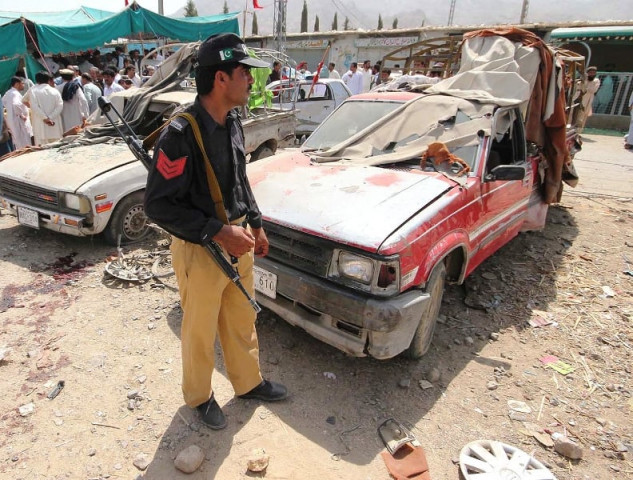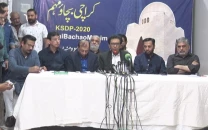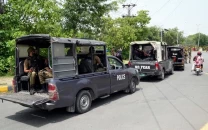Balochistan unrest: Experts see Indian policy endorsement as a cover-up
Govt lauds New Delhi’s support for democratic institutions in some insurgency-hit states.

Pakistan’s rare endorsement of the Indian approach to tackling insurgency in some of its states is a pretext to intensify operations against Baloch nationalists, say experts.
In a statement earlier the interior ministry lauded India’s policy of allowing democratic institutions to thrive unhindered in Assam, East Punjab, Mizoram and Kashmir as a measure to counter armed insurgency in these states.
It was claimed that the government’s stance of appraising Indian strategy, which comes out as a commitment to democracy, is actually a path to avoid condemnation for various human rights issues surfacing in a province plagued by a deplorable law and order crises since years. “This is the first time they [the government] have publicly praised the Indian pattern, because it provides them a perfect cover-up for mala fide intentions and actions,” says political analyst Muhammad Ali Talpur.
This ‘new turn’ will allow operation against Baloch rights groups to intensify, Talpur said.
Former lawmaker Lashkari Raisani said that a “great game” was being played by law enforcement agencies in volatile areas of the province. “Sanctioning India’s approach is indicative of the government’s weakness,” said Raisani, who had left the ruling Pakistan Peoples Party to protest the government’s failure to quell unrest in the province.
“There is no coordination between the military establishment and the civilian government to resolve the issue in the province. How can you resolve the issue when almost all committees constituted by the government have failed to convene a single meeting?” asked Raisani. He had earlier called for a grand political alliance for setting up a new democratic order in Balochistan for the coming elections.
Involvement of foreign hands in Balochistan unrest, if any, should also be exposed by the government, he added.
Rule of law
The President of Balochistan High Court Bar Association, Zahoor Ahmed Shahwani, said that the apex court made it clear that the provincial authorities have failed to restore peace in the province and it’s now the centre’s responsibility to take up the issue immediately. “People don’t trust the provincial government now. Therefore they vest greater faith in the implementation of the law, which of course, will come through the Supreme Court,” said Shahwani, who is a petitioner in the Balochistan law and order case in the apex court.
Published in The Express Tribune, November 4th, 2012.



















COMMENTS
Comments are moderated and generally will be posted if they are on-topic and not abusive.
For more information, please see our Comments FAQ